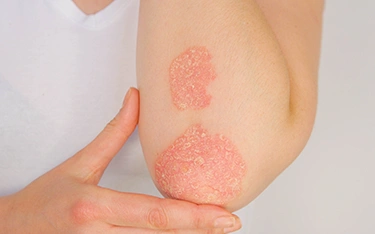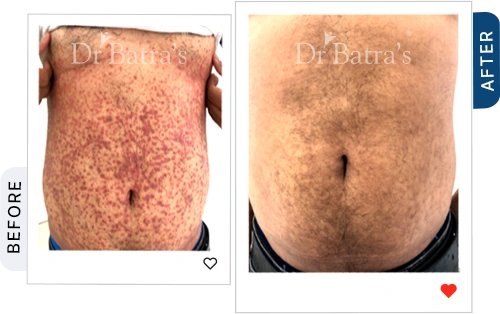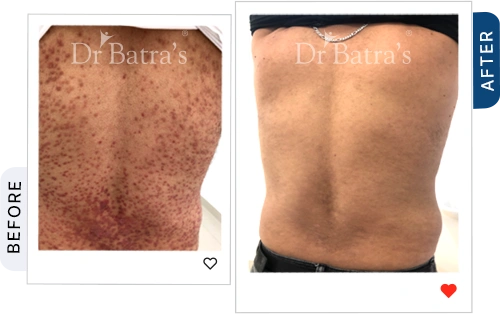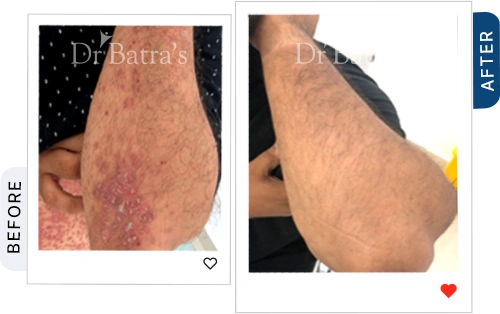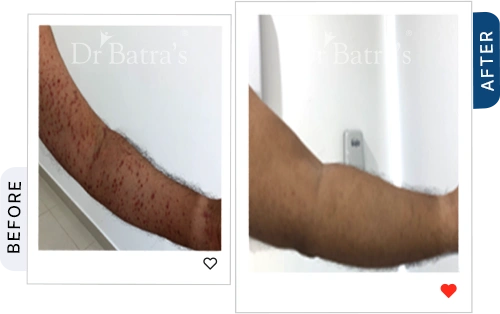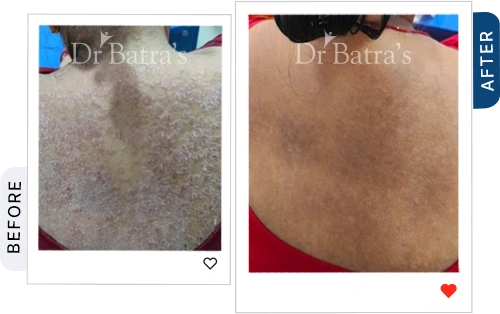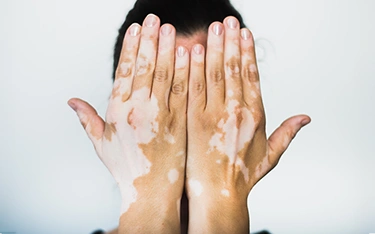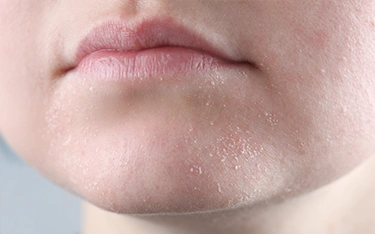FAQs
Psoriasis, an autoimmune disease, often shows red, inflamed skin patches covered with white scales. Other symptoms include itching, dryness, and cracking. These flare-ups may vary in severity and location, and in some cases, can spread to nails or joints, affecting daily comfort and appearance.
If you’re wondering if psoriasis is an autoimmune disease, the answer is yes, and flare-ups occur when immune triggers are activated. Stress, infections, injuries, weather changes, and hormonal shifts can worsen symptoms by accelerating skin cell production and inflammation, leading to more frequent or intense episodes of psoriasis.
While there’s no complete cure for psoriasis, an autoimmune disease, long-term relief is possible. Homeopathy helps control immune overactivity, reduce inflammation, and manage triggers, extending remission periods. With consistent treatment and lifestyle adjustments, many patients enjoy clear skin and minimal flare-ups over time without harsh side effects.
Homeopathy treats psoriasis by addressing the root cause, its autoimmune nature. Remedies help calm immune triggers, reduce inflammation, and promote skin healing from within. This holistic approach offers safe, personalised, and long-term relief, targeting both external symptoms and internal imbalances for better overall skin and immune health.
Yes. Since psoriasis is an autoimmune disease, immune dysfunction can extend beyond the skin. Severe cases may increase the risk of other autoimmune disorders like psoriatic arthritis, inflammatory bowel disease, or cardiovascular conditions. Early diagnosis and treatment are vital to prevent systemic complications and protect long-term health.
Absolutely. For an autoimmune disease like psoriasis, healthy habits can make a big difference. Stress reduction, a balanced anti-inflammatory diet, regular exercise, and gentle skincare can help control immune overactivity. Combined with homeopathic treatment, these changes can reduce flare-ups and improve quality of life significantly.
